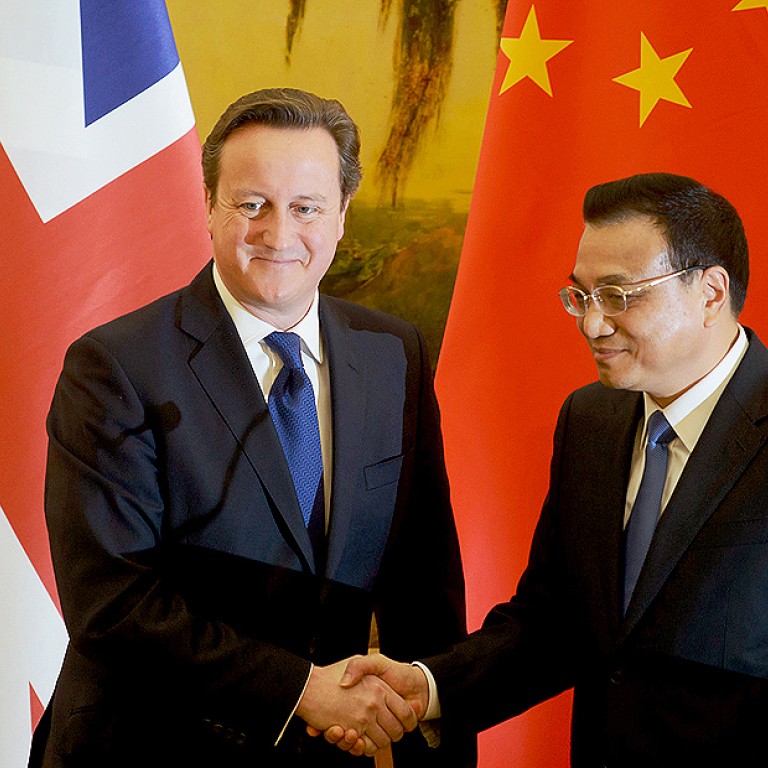
China to consider British help on tunnel in exchange for role in rail and energy projects
Country's engineers gained expertise building undersea link to France, but Beijing would expect to play role in railway, energy projects
China might allow Britain to take part in the construction of a large undersea tunnel in exchange for a role in its high-speed railway and nuclear power projects, a senior state firm engineer said.

Premier Li Keqiang began his first state visit to Britain yesterday and is expected to discuss finance and trade matters with his counterpart, David Cameron, during his trip.
Professor Wang Mengshu, deputy chief engineer with China Railway Tunnel Group and a senior scientific adviser to the government on high-speed railway projects, said British representatives had gone to China to discuss cooperation in the construction of the 123km Bohai Strait Tunnel.
The project, which was submitted to the central government for final approval earlier this year, would connect Dalian in Liaoning and Yantai in Shandong province.
The 260 billion yuan (HK$323.7 billion) tunnel would exceed the combined length of Japan's Seikan tunnel and the tunnel that connects England to France.
"Britain has offered the technology and experience that they acquired in the construction under the English Channel," Wang said. "China has asked them to come up with a plan with technical details."
In exchange, China hoped to take part in Britain's construction of high-speed railway lines and new nuclear reactors planned by the government.
But China faced a hard sell, Wang said. "The country is too small. They don't have much land for long-haul high-speed rail projects with speeds of 350km/h or higher.
"How sincerely do they want the high-speed rail from China? We have doubts."
The two countries also took different approaches towards how such lines were built.
"Britain has favoured burying rail lines underground to save land, while China builds them on high bridges. We can help if they can change their mentality," Wang said.
A researcher with the China National Nuclear Corporation said negotiations over China's participation in British nuclear plant construction had encountered a similar lack of trust. "Britain is obviously interested only in our money. They think China is a cash cow. We want to sell them our technology and equipment, but they do not trust us," he said, declining to be named due to sensitivity of the issue.
China had sought a French partner to ease its access to the British nuclear market, but negotiations had not gone smoothly, he said.
"China is a latecomer in the game and our homegrown technology only looks good on paper. Why would the UK buy a new third-generation reactor from China if it has not even been used at home?"
Li is also scheduled to meet Britain's Queen Elizabeth, an unusual meeting that observers say shows how aware China has become of its world status.

